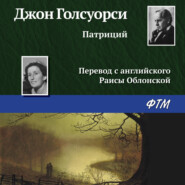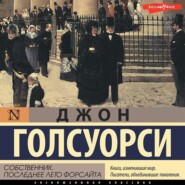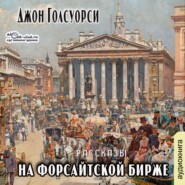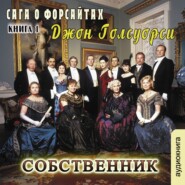По всем вопросам обращайтесь на: info@litportal.ru
(©) 2003-2024.
✖
Villa Rubein, and Other Stories
Настройки чтения
Размер шрифта
Высота строк
Поля
“No, thank you. I shall be painting all day. Haven’t time to know the sort of people who expect one to change one’s clothes.”
“As you like; ta-to!” And, puffing out his chest, Dawney vanished through a blanket looped across the doorway.
Harz set a pot of coffee on a spirit-lamp, and cut himself some bread. Through the window the freshness of the morning came; the scent of sap and blossom and young leaves; the scent of earth, and the mountains freed from winter; the new flights and songs of birds; all the odorous, enchanted, restless Spring.
There suddenly appeared through the doorway a white rough-haired terrier dog, black-marked about the face, with shaggy tan eyebrows. He sniffed at Harz, showed the whites round his eyes, and uttered a sharp bark. A young voice called:
“Scruff! Thou naughty dog!” Light footsteps were heard on the stairs; from the distance a thin, high voice called:
“Greta! You mustn’t go up there!”
A little girl of twelve, with long fair hair under a wide-brimmed hat, slipped in.
Her blue eyes opened wide, her face flushed up. That face was not regular; its cheek-bones were rather prominent, the nose was flattish; there was about it an air, innocent, reflecting, quizzical, shy.
“Oh!” she said.
Harz smiled: “Good-morning! This your dog?”
She did not answer, but looked at him with soft bewilderment; then running to the dog seized him by the collar.
“Scr-ruff! Thou naughty dog – the baddest dog!” The ends of her hair fell about him; she looked up at Harz, who said:
“Not at all! Let me give him some bread.”
“Oh no! You must not – I will beat him – and tell him he is bad; then he shall not do such things again. Now he is sulky; he looks so always when he is sulky. Is this your home?”
“For the present; I am a visitor.”
“But I think you are of this country, because you speak like it.”
“Certainly, I am a Tyroler.”
“I have to talk English this morning, but I do not like it very much – because, also I am half Austrian, and I like it best; but my sister, Christian, is all English. Here is Miss Naylor; she shall be very angry with me.”
And pointing to the entrance with a rosy-tipped forefinger, she again looked ruefully at Harz.
There came into the room with a walk like the hopping of a bird an elderly, small lady, in a grey serge dress, with narrow bands of claret-coloured velveteen; a large gold cross dangled from a steel chain on her chest; she nervously twisted her hands, clad in black kid gloves, rather white about the seams.
Her hair was prematurely grey; her quick eyes brown; her mouth twisted at one corner; she held her face, kind-looking, but long and narrow, rather to one side, and wore on it a look of apology. Her quick sentences sounded as if she kept them on strings, and wanted to draw them back as soon as she had let them forth.
“Greta, how can, you do such things? I don’t know what your father would say! I am sure I don’t know how to – so extraordinary – ”
“Please!” said Harz.
“You must come at once – so very sorry – so awkward!” They were standing in a ring: Harz with his eyebrows working up and down; the little lady fidgeting her parasol; Greta, flushed and pouting, her eyes all dewy, twisting an end of fair hair round her finger.
“Oh, look!” The coffee had boiled over. Little brown streams trickled spluttering from the pan; the dog, with ears laid back and tail tucked in, went scurrying round the room. A feeling of fellowship fell on them at once.
“Along the wall is our favourite walk, and Scruff – so awkward, so unfortunate – we did not think any one lived here – the shutters are cracked, the paint is peeling off so dreadfully. Have you been long in Botzen? Two months? Fancy! You are not English? You are Tyrolese? But you speak English so well – there for seven years? Really? So fortunate! – It is Greta’s day for English.”
Miss Naylor’s eyes darted bewildered glances at the roof where the crossing of the beams made such deep shadows; at the litter of brushes, tools, knives, and colours on a table made out of packing-cases; at the big window, innocent of glass, and flush with the floor, whence dangled a bit of rusty chain – relic of the time when the place had been a store-loft; her eyes were hastily averted from an unfinished figure of the nude.
Greta, with feet crossed, sat on a coloured blanket, dabbling her finger in a little pool of coffee, and gazing up at Harz. And he thought: ‘I should like to paint her like that. “A forget-me-not.”
He took out his chalks to make a sketch of her.
“Shall you show me?” cried out Greta, scrambling to her feet.
“‘Will,’ Greta – ’will’. how often must I tell you? I think we should be going – it is very late – your father – so very kind of you, but I think we should be going. Scruff!” Miss Naylor gave the floor two taps. The terrier backed into a plaster cast which came down on his tail, and sent him flying through the doorway. Greta followed swiftly, crying:
“Ach! poor Scrufee!”
Miss Naylor crossed the room; bowing, she murmured an apology, and also disappeared.
Harz was left alone, his guests were gone; the little girl with the fair hair and the eyes like forget-me-nots, the little lady with kindly gestures and bird-like walk, the terrier. He looked round him; the room seemed very empty. Gnawing his moustache, he muttered at the fallen cast.
Then taking up his brush, stood before his picture, smiling and frowning. Soon he had forgotten it all in his work.
II
It was early morning four days later, and Harz was loitering homewards. The shadows of the clouds passing across the vines were vanishing over the jumbled roofs and green-topped spires of the town. A strong sweet wind was blowing from the mountains, there was a stir in the branches of the trees, and flakes of the late blossom were drifting down. Amongst the soft green pods of a kind of poplar chafers buzzed, and numbers of their little brown bodies were strewn on the path.
He passed a bench where a girl sat sketching. A puff of wind whirled her drawing to the ground; Harz ran to pick it up. She took it from him with a bow; but, as he turned away, she tore the sketch across.
“Ah!” he said; “why did you do that?”
This girl, who stood with a bit of the torn sketch in either hand, was slight and straight; and her face earnest and serene. She gazed at Harz with large, clear, greenish eyes; her lips and chin were defiant, her forehead tranquil.
“I don’t like it.”
“Will you let me look at it? I am a painter.”
“It isn’t worth looking at, but – if you wish – ”
He put the two halves of the sketch together.
“You see!” she said at last; “I told you.”
Harz did not answer, still looking at the sketch. The girl frowned.
Harz asked her suddenly:
“Why do you paint?”
She coloured, and said:
“Show me what is wrong.”

















